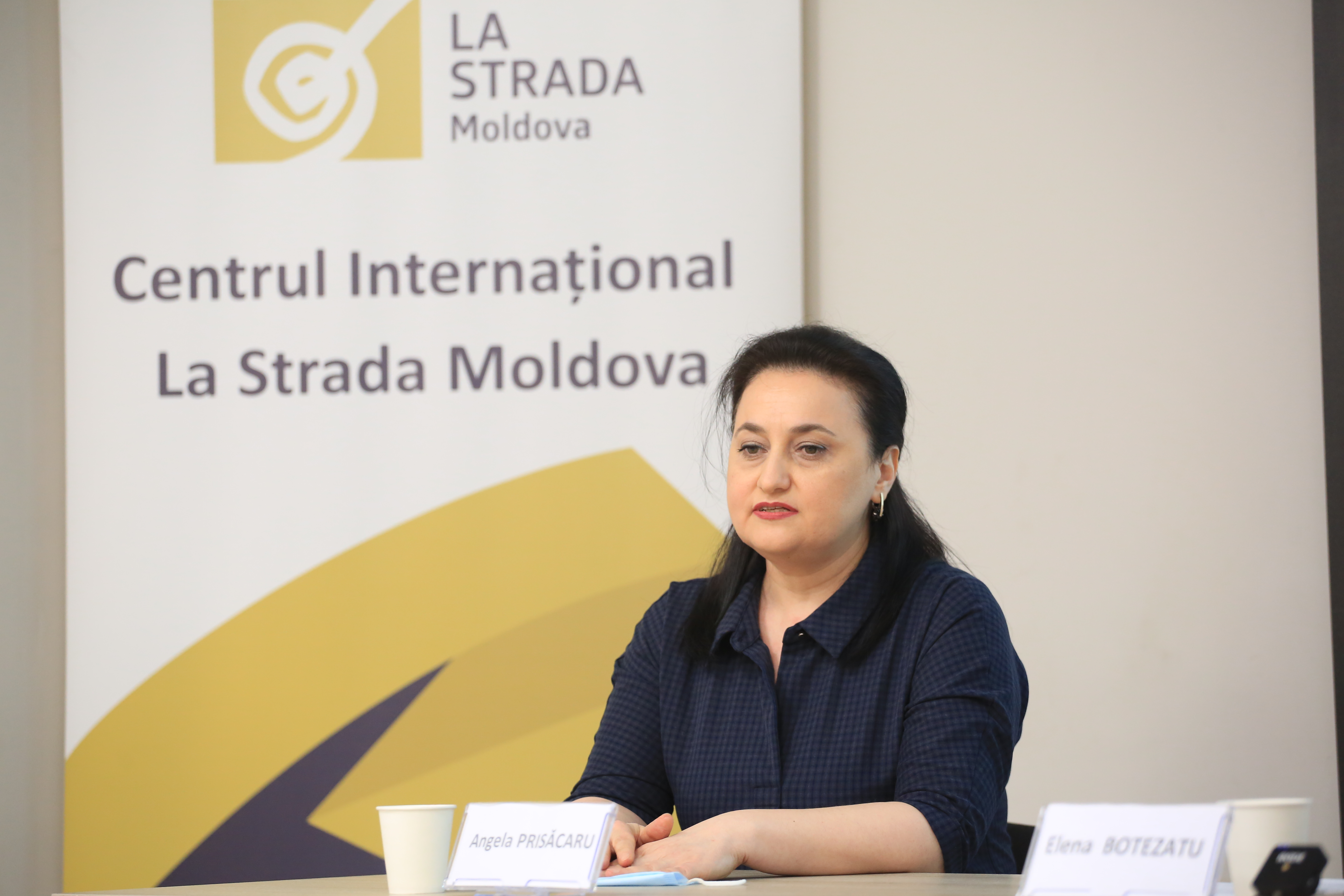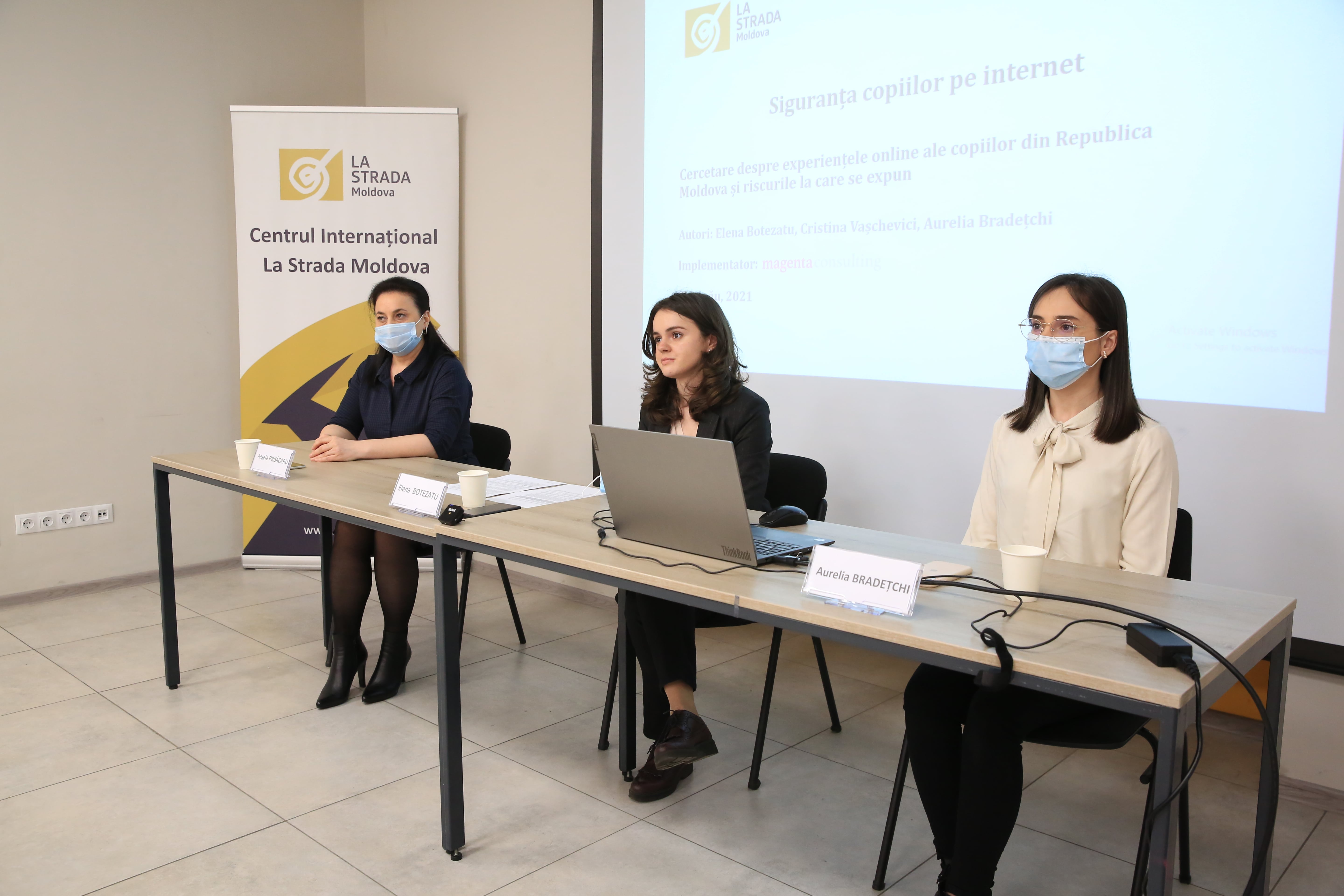Every second child in our country says that someone unknown has asked him, at least once, to send sexual images online. At the same time, 40% of these children will not tell anyone about this experience, and only 9% will talk about the unpleasant situation with their parents.
These are the data of a study recently developed by the International Center "La Strada," presented today at a press conference.
Although research from 4 years ago shows that children have increased interest in online activities, the 2021 study shows that this interest leads children to situations for which they are not prepared, because of not having enough life skills. For example, although 9 out of 10 children regularly produce and post videos of themselves, 4 of these children do not know how to change their privacy settings on social media, and every seventh child does not know what information can be published online and which should not be told to anyone. 2 out of 10 children aged 9-11 communicated online with strangers. More dangerous, however, is the fact that half of them admitted that they met people they met online.
Elena BOTEZATU, Director of the Issues Affecting Children Program of IC "La Strada Moldova:" This research was conducted in the context in which the pandemic situation caused children to spend more time online. More time online means more opportunities and more risks, if the child does not have the necessary skills to navigate safely. One of the biggest challenges to the safety of children on the Internet is to protect them from sexual abuse. In the last 12 months, the number of online sexual abuse reported by children has increased by 50%. That is why, through this study, we specifically proposed to identify the risky behaviors of children in the virtual environment, which amplify their vulnerability to this type of abuse.

Angela PRISĂCARU, Senior Consultant, Ministry of Education, Culture and Research: “In the current school curriculum, there are several school subjects that have contents and even units about child online safety, these subjects include: Digital Education, Education for Society, Personal Development, Computer Science, and optional subjects. It is essential to prepare the teacher to capitalize on these contents and obtain the desired result fully".

In addition to analyzing children's behaviors on the Internet, the research also aimed to study the socio-economic profile of the respondents. The hypothesis of the "La Strada" specialists outlined a direct link between the social environment from which the child comes, his relationship with his family, school, and community on the one hand, and the level of risk of abuse in the online environment, on the other hand. The research results confirmed this hypothesis. Children say that the most unpleasant situations they face in the online environment are related to involuntary access to sexual content (13%), situations when they receive vulgar, degrading messages or sexual images (12%), but also when they are harassed, humiliated. However, the study shows that not all of these children are at risk of becoming sexually abused online.
In-depth interviews helped us outline a "virtual portrait" of the child most vulnerable to sexual abuse and exploitation on the Internet. These are teenagers between the ages of 15 and 17, with low social status and who come from incomplete families - they live with one parent, have no parents, or are left in the care of grandparents or relatives. These children prefer not to talk to anyone about their situation and say, that they “don't feel safe at home." Girls and boys are equally vulnerable.
The study "Child Safety Online. Research on the online experiences of children in the Republic of Moldova and the risks they are exposed to" was conducted by IC "La Strada," with the support of the Ministry of Education, Culture and Research, with the financial support of the Norwegian Ministry of Foreign Affairs within the project “Supporting national authorities to advance policy response to trafficking in human beings, with full respect for human rights and the rights of trafficked persons".
The research sample included 3,829 children. 20 interviews were conducted with children aged between 9 and 17 from Chisinau and other regions of the country, including from the ATU Gagauzia Region.










